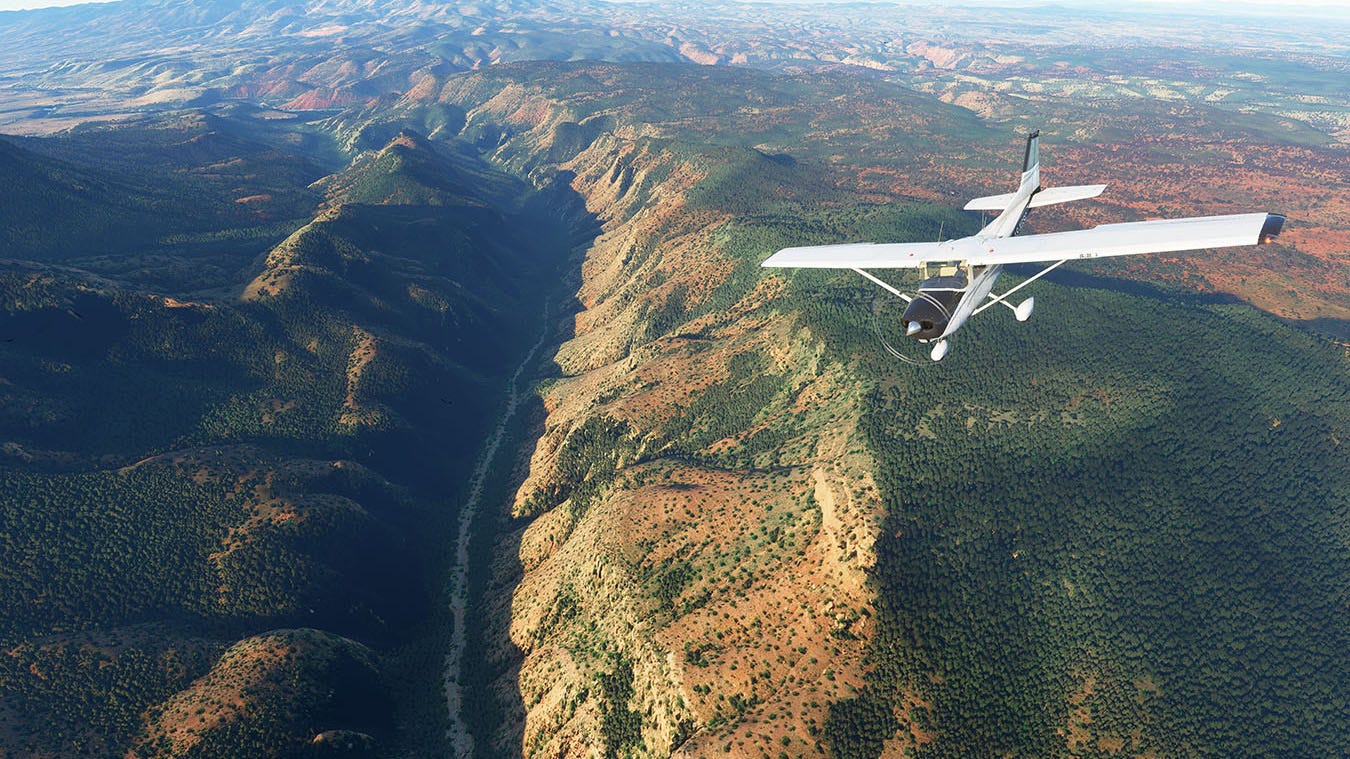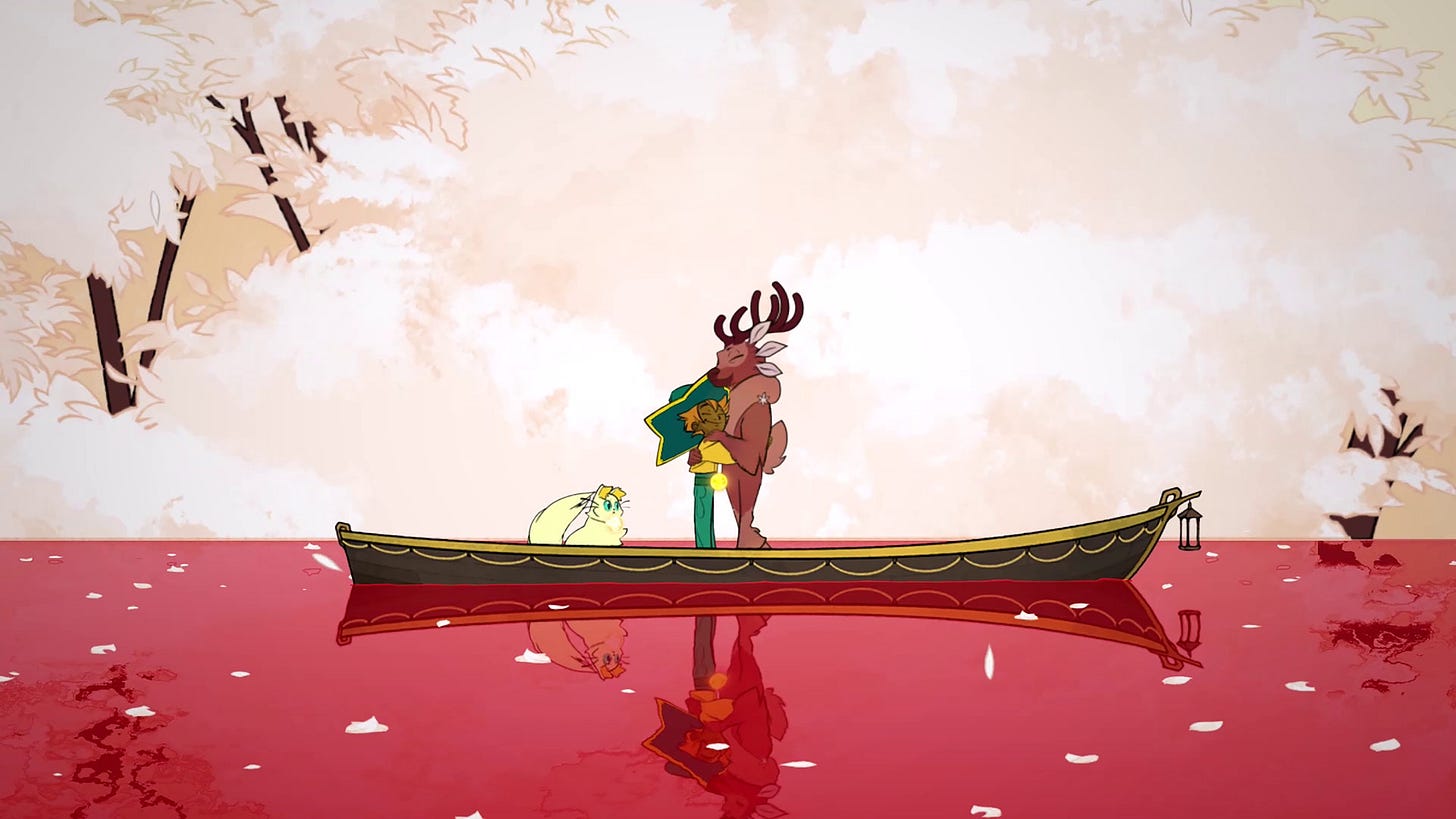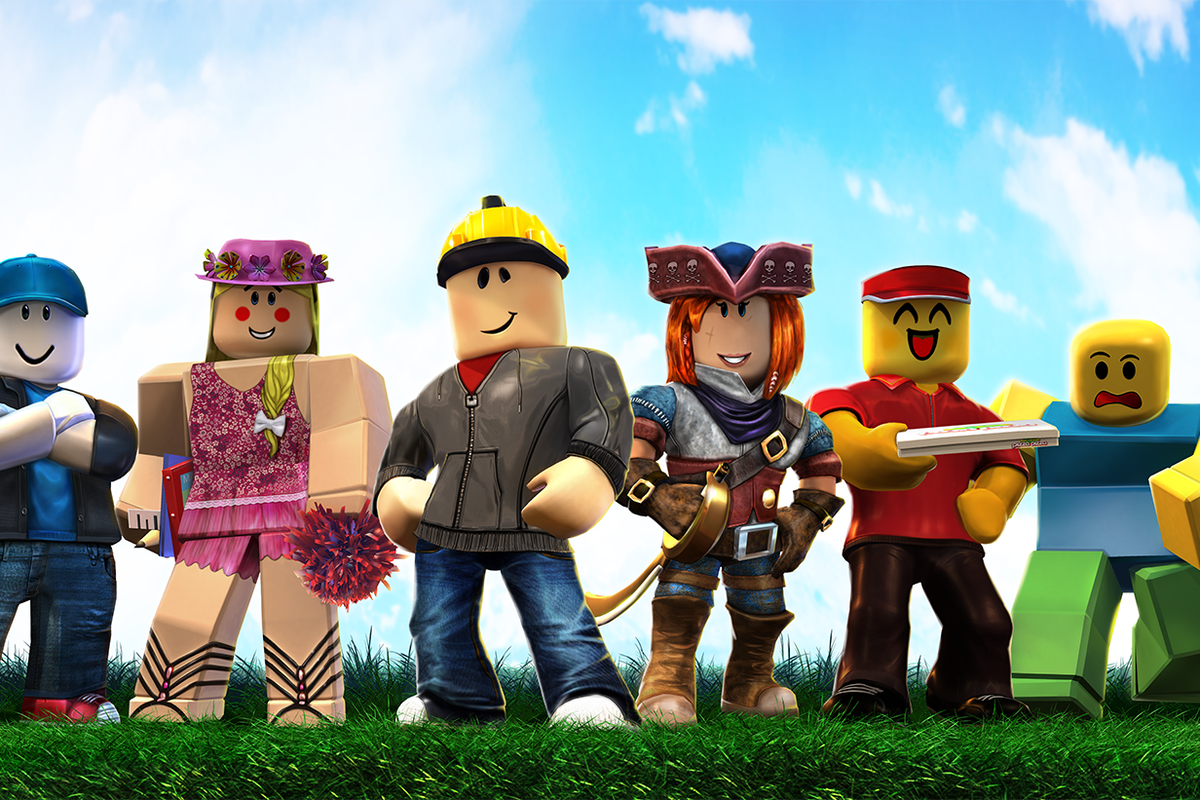The biggest game of the year is here — and it's hilariously messy
It's a bird! It's a plane! It's a demonic skyscraper piercing the clouds of Melbourne!
[Hi, I’m Chris Plante, and you’re reading Postgame, a weekly newsletter collecting the best games, stories, and videos in the video game community into a fun, digestible package on Wednesday and Sunday mornings. Learn more on the Postgame About page. Postgame is edited by Stephie Grob Plante. Want to support Postgame? Share it with a friend! Or even better, visit my work-home at Polygon.com!]
Fun personal news:
This fall I’ll be teaching Intro to Games Journalism at NYU. Back in 2014, I designed the course for NYU Game Center and taught a semester. I moved to Texas the following year and couldn’t logistically continue the course. But now the world is remote, sooooooooo I’m back — at least for this semester.
I’ve needed my free time this weekend to finish prep, which means I won't have a meaty Postgame introduction. I did take a moment, however, to fiddle with the presentation of the newsletter. I think the revised format is easier to scan, plus the simplified design leaves room for more links. Win-win.
Microsoft Flight Simulator is literally the ‘biggest’ game of the decade

Microsoft Flight Simulator
Flight Simulator uses cloud-computing, global maps, satellite imagery, 3D topographical imagery, and procedural generation to produce a believable replica of our entire planet. Well, mostly believable. The friction between all those moving, interlinking parts has led to some oopsies in which reality distorts in hilarious (and horrific!) ways. For example, “an innocent typo led to a giant 212-story obelisk in Microsoft Flight Simulator.” (Tom Warren, The Verge)
An impossible obelisk isn’t the only delightful bug. I’m particularly fond of what the game did to Buckingham Palace. (Cass Marshall, Polygon)
I adore the game, warts and all. I’m not alone. “Despite its pitch for realism, the most endearing parts of Microsoft's popular flying experience are the imperfections.” (Cecilia D'Anastasio, Wired)
Game maker and speaker Rami Ismail spent the past decade traveling on planes to conferences across the globe. Stuck at home in the pandemic, Flight Simulator reminds him of the world’s bigness and the access flight provides. (Rami Ismail, Twitter)
When Microsoft revealed the Xbox One, they pitched a video game console with limitless computing power thanks to the potential of the cloud. Flight Simulator, not yet available on the console, is the first game to begin delivering on that promise. Microsoft is flexing technological strength that demands expertise and resources far outside the games space, something most of its competitors can’t match. (Seth Schiesel, Protocol)
We all agree that it’s a technical marvel, but is there any game in this game? The creators of Flight Simulator explain how the actual gameplay works. (Matthew Castle, Rock, Paper, Shotgun)
The various editions of Microsoft Flight Simulator include a variety of planes and “hand-crafted” recreations of famous airports. So which version should you buy? (Emily Heller, Polygon)
The Epic / Apple / Google feud, cont.

Fortnite
Apple responded to Epic’s lawsuit: “In the wake of its own voluntary actions, Epic now seeks emergency relief. But the ‘emergency’ is entirely of Epic’s own making.” (Adi Robertson, The Verge)
Obviously, things are more complex than Apple suggests. You can read the e-mails between Apple and Epic for yourself. (Nick Statt, The Verge)
Ultimately, the Epic / Apple / Google feud is about monopolies. Just how big are Apple and Google? BIG. And by taking 30% of a game developer’s revenue, they stand to only grow bigger. Or put simply at ia.net: “In our industry, taking 30% from your revenue, prevents developers from running a sustainable business.” (ia.net)
Continuing an icky campaign to mobilize its fanbase against Apple, Epic will host a #FreeFortnite tournament today. I can’t get past the tone-deafness of a billion-dollar company using social progress language and strategy to help sway public opinion about their battle with a trillion-dollar company. (Alissa McAloon, Gamasutra)
Perhaps most importantly: Where does this “epic” showdown fit into the national conversation about wealth distribution? Matt Stoler, the director of research at the American Economic Liberties Project, provides an answer in his newsletter. (Matt Stoler, BIG)
Three games to play

Spiritfarer
Spiritfarer
Spiritfarer is the rare video game about death that isn’t centered on killing. Early reviews sound promising:
“The characters in Spiritfarer get to do what we all want — they can make peace with both their life and death in their own time. They get to decide when it's time to move on.” (Malindy Hetfeld, Eurogamer)
“The backstories of these characters are not the usual fluff you might see in community sims like Animal Crossing or Stardew Valley. They hit harder because these characters are, well, dead. They reminisce on their old lives, the families they left behind, good times, bad times, and of course, their own deaths. In this way, they are more than just boat passengers, they're friends, teachers, guides, and confidants.” (Rachel Watts, PCGamer)
“At no point during Spiritfarer did I feel helpless, like there was not something I could do to bring some sort of relief to the spirits on board the ship. It’s a stark contrast to how I’m experiencing the grief of death in real life, but it’s comforting.” (Nicole Carpenter, Polygon)
Microsoft Flight Simulator
It’s a little buggy and at times quite opaque (I recommend Polygon’s guides) but the game is achieving something I’d assumed impossible: a believable topographic recreation of our planet. This game wouldn’t exist without a rare and precious mix of technology that only a company like Microsoft has, can afford, and is willing to bring together for little more than our entertainment. Microsoft’s taken a handful of swings at technological breakthroughs with hardware like Kinect and Hololens, and they’ve whiffed. This week, they hit a home run. Good for ‘em!
The reviews agree:
“Flight Simulator is a powerful platform for exploration, the perfect piece of software for a country trapped at home by a lingering global pandemic.” (Charlie Hall, Polygon)
“Like many players who'll be drawn to this most attractive of games, I can't claim to be an expert in the discipline of flying, nor in the simulation of it. But Microsoft Flight Simulator is the kind of thing that can make an enthusiast of you, or rekindle a passion that's been lying dormant.” (Martin Robinson, Eurogamer)
Rogue Legacy 2
The game is very much in Early Access, missing a majority of its levels, but if you really enjoyed the original Rogue Legacy, here’s what you need to know: The sequel is more of what you loved about the original.
My pal Russ Frushtick highlighted the sequel’s most welcome improvement. (Russ Frushtick, Polygon)
Three stories to read

Mythic Quest
Half-hour TV comedy Mythic Quest examines the video game industry through an anti-capitalist lens. The Apple TV exclusive mixes laidback comedy with an uncommonly blunt critique of crunch culture, sexism, and puerility of the games industry. For its first season, the show’s producers partnered with video game publisher Ubisoft. In light of the many allegations of harassment and sexism at the publisher, I will be curious to see how (or even if) the show responds with its second season. If you want to try the show but don’t want to commit to a full season just yet, try the fifth episode, a standalone story about a couple’s 10-year highs and lows creating a horror game franchise. (Ciara Moloney, CurrentAffairs)
Tired: Watching Contagion to deal with COVID. Wired: playing horror games to deal with COVID. (Steven Wright, Uppercut)
Expanded universes can be lots of fun, giving fans mountains of material, encouraging them to theorize about connections, and speculate on where colossal stories will go next. But expanded universes also come with stressors: the requirement of expertise, the lack of conclusions, the encroaching sensation of uniformity. This friction is at the heart of the latest expansion to 2019’s cosmic shooter Control, the new content looping in the beloved (but hitherto defunct) Alan Wake franchise. (Waverly, Paste)
Three videos to watch
An Animal Farm video game that’s genuinely promising
Nerial via Twitter


One of my fave critics spent a lot of time with that Fast and Furious game
Writing on Games via YouTube
Do some video games “design themselves?"
Game Maker’s Toolkit via YouTube
Free Game of the Week

Pre-Shave
Pre-Shave
Saam Pahlavan and M. James Short, SaamSoft
If the GIF hasn’t already sold you, then read this zero-spoiler synopsis from the game’s Steam page: “You play as Saam preparing to get ready for a trip. Explore the anxieties of his nervous mind, thwart your excessive body hair with the use of your powerful shaving gear, and don't forget to brush your teeth!”
The best of the rest…

Roblox
The New York Times covered Roblox, the biggest game with the least amount of traditional coverage.
The new Batman game won’t star Batman and I’m extremely into it. Here’s a lengthy gameplay video.
I told y’all to try Blaseball and the next day it took a weeks-long hiatus. Good news, though: It returns tomorrow. This F.A.Q. helps newcomers dive into the greatest phenomenon in splorts. (Elliot on Twitter)
How the hell can this person do a speedrun in VR without vomiting everywhere? (Brian Feldman, BNet)
Kishonna L. Gray has a new book hitting stores! Black Users in Digital Gaming is available through LSU Press. You can buy the ebook version through Amazon.
Ephemera


The “Zoom DNC” was surprisingly okay!
What the hell does “back-to-school” mean during the pandemic?
Great Pretender will probably be the next big anime everybody talks about.
But what do you think?
Send links, tips, comments, questions, games, and cheeky court documents to @plante.
That’s a wrap. See y’all Wednesday morning. Wear a mask!



